Every day, it seems like there’s a new diet craze taking over the country. People everywhere are shedding pounds with the latest trends, but how much do we actually understand about these health movements? And more importantly, how effective are they in the long run?
Before you go emptying your fridge and pantry or completely altering your workout routine, it might be wise to consider this list. We’ve gathered 30 unsettling truths about some of the most popular health trends of our time…
“Raw” Water

“For those unfamiliar, “raw” water originates from a lava tube in Oregon. Live Water is the company behind gathering and selling this water, asserting that it has been untouched for potentially up to 10,000 years, rendering it purer than bottled water. However, consuming this untreated water has been associated with severe stomach discomfort and even diarrhea.
Fat-Free Everything
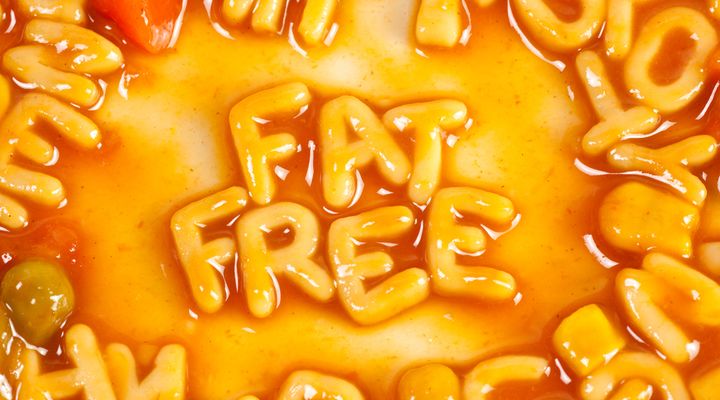
Eliminating all fats was once heralded as a solution in the 1990s, believed to ward off weight gain, heart disease, and certain cancers. However, the reality is starkly different. Cutting out fats entirely can lead to various issues, such as fatigue, memory impairment, skin troubles, and deficiencies in essential nutrients.
Juice Only Diets
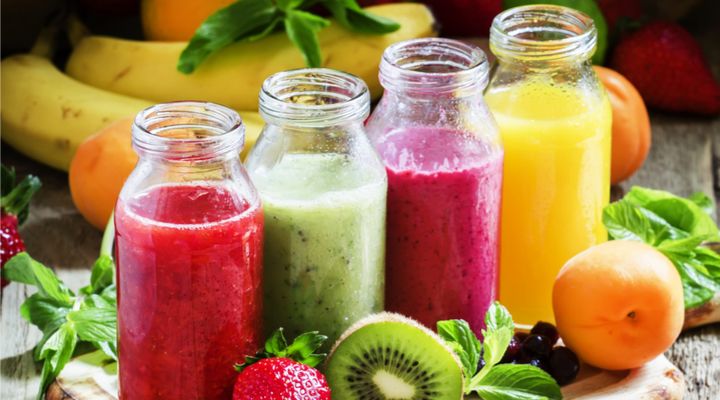
The current fad revolves around a simple premise: consuming only juice along with a regiment of supplements will purportedly detoxify the body from toxins and other harmful substances. However, despite its straightforward appeal, scientific evidence does not support this notion. Julie Duffy Dillon, a registered dietitian and eating disorder specialist in North Carolina, points out, “Our bodies are complex, with a balance of microorganisms that work in conjunction with our GI tract, liver, and kidneys to filter, digest, and detox our bodies of any unnecessary impurities.” Therefore, this diet is deemed unnecessary and can result in adverse effects such as gas, bloating, diarrhea, muscle loss, and a weakened immune system.
Cutting Too Many Calories

Losing weight typically requires burning more calories than you consume, meaning that reducing calorie intake can indeed facilitate weight loss. However, it’s crucial to note that cutting calories excessively can lead to detrimental effects. Severely restricting calories puts the body in a state of starvation, which paradoxically can result in weight gain over time, along with nutrient deficiencies, binge eating, and even depression. Striking a balance is key to achieving sustainable weight loss without compromising overall health and well-being.
Vitamin And Supplement Super-Sizing
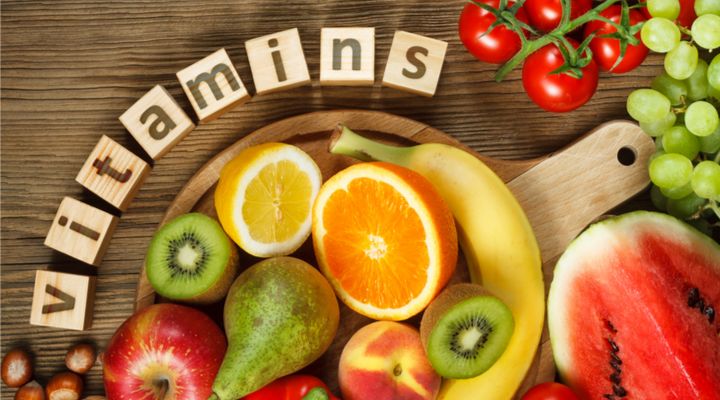
While vitamins and supplements can enhance one’s diet, excessive reliance on them can pose risks. When heavily relying on these additions to your diet, your body misses out on the associated nutrition from consuming foods that naturally provide these vitamins. Consequently, vitamin-heavy diets can lead to adverse effects such as vomiting, diarrhea, numbness, headaches, muscle weakness, blurred vision, and even hair loss. It’s essential to prioritize a balanced diet rich in whole foods to ensure adequate nutrient intake while using supplements judiciously and under the guidance of a healthcare professional when necessary.
Assuming Natural Equals Safe

While herbal remedies may appear appealing, their efficacy isn’t always guaranteed. According to the Cleveland Clinic, there are few valid studies supporting the effectiveness of herbal remedies. Unlike conventional medicines, herbal remedies often don’t undergo the same rigorous scrutiny. For instance, a remedy like “Goldenseal” may cause heart abnormalities. It’s essential to approach this trend with caution and conduct thorough research, as these remedies may not be thoroughly tested for safety and efficacy.
Sauna Suits

While the concept of a sauna suit might seem like an easy solution, the reality is far from it. Sauna suits induce profuse sweating, which some believe aids in weight loss. However, the issue lies in the fact that wearing a sauna suit primarily leads to loss of water, not fat. This can result in severe dehydration, dizziness, and in extreme cases, coma or death. It’s crucial to recognize that such practices are not only ineffective for long-term weight loss but also pose significant risks to health and well-being.
Cutting All Carbs
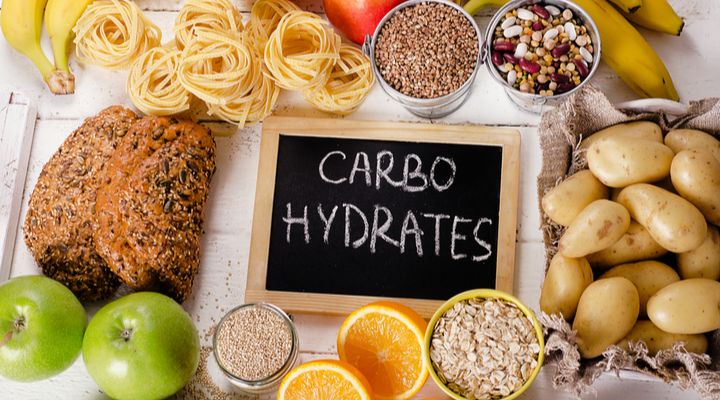
Reducing carbohydrate intake can indeed be beneficial, especially when it involves eliminating unnecessary snacks like cookies and pretzels. However, it’s important to strike a balance. Healthy carbohydrates found in foods such as sweet potatoes, squash, and beans offer numerous benefits. These complex carbs support brain and body function, and completely cutting out carbs can have detrimental effects on both areas. Therefore, focusing on consuming healthy, nutrient-rich carbs is key to maintaining overall health and well-being.
Going 100% Vegan
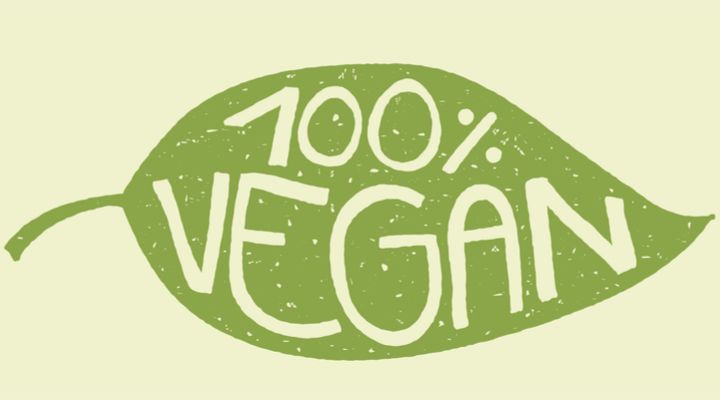
The raw vegan diet has gained considerable popularity lately, and while it can offer health benefits, individuals need to proceed with caution. Adopting a vegan lifestyle can make it challenging for the body to obtain essential nutrients. Without careful planning, research, and meal preparation, it’s easy to fall short on vital nutrients. Additionally, access to a variety of ingredients, which may not be readily available in all areas, is crucial for maintaining a balanced vegan diet. Therefore, unless one has ample time for research, meal prep, and access to suitable ingredients, veganism may not be a suitable dietary choice.
Too Much Protein

Protein is the building block of lean tissue. Your body needs sufficient amounts to be healthy. But, like all things, too much can be a bad thing. Diets too high in protein have been reported to cause kidney disease, kidney stones, osteoporosis, and even some forms of cancer.
Activated Charcoal

This health trend involves using charcoal to give foods a striking matte black color, purportedly for detoxifying the body. However, it’s crucial to exercise caution as activated charcoal not only detoxifies the body but also depletes essential nutrients. While this trend may offer some benefits, it can also pose significant dangers. Many individuals have reported experiencing gastrointestinal distress after consuming foods treated with activated charcoal. Moreover, inhaling activated charcoal particles can lead to lung damage. Therefore, while this trend may have its uses, it’s essential to be aware of its potential risks and limitations.
Adding Cinnamon To Everything

Cinnamon has been a healthy part of the Ayurvedic diet for centuries. It’s even mentioned in the Bible and helps manage cholesterol and fight diabetes. But high doses of cinnamon (especially the cheap kind, which is very common in America) can cause liver damage.
Edible Flowers

This trend involves using small flowers as a decorative garnish for desserts such as cupcakes or pudding, or even for healthier options like salads. While these floral decorations may enhance the aesthetic appeal of the dish, it’s important to exercise caution as some flowers can be highly toxic if ingested. Ingesting certain flowers can lead to severe health issues, including liver failure. Therefore, if you encounter a dessert adorned with flowers, it’s best to err on the side of caution and discard the flowers rather than consuming them.
Switching To Coconut Oil Only
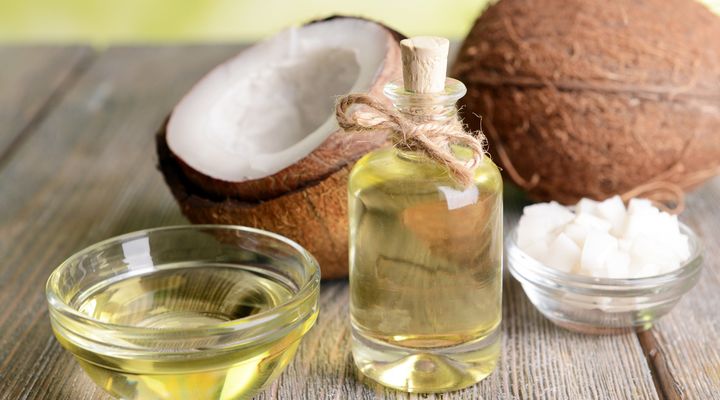
While regular oil might sound unhealthy, exclusively switching to coconut oil isn’t necessarily a better option and can actually pose risks. Despite being marketed as a healthier alternative to oils like vegetable oil, coconut oil has drawn criticism from organizations like the American Heart Association. It’s been stated that coconut oil is more detrimental to health than traditional sources of saturated fats like butter, beef, and pork lard. This is because coconut oil is incredibly high in saturated fat, with around 82 percent content. Just two spoonfuls of coconut oil can exceed the recommended daily intake of saturated fat for an individual. Therefore, it’s important to be mindful of the potential health implications of consuming excessive amounts of coconut oil.
Going Gluten-Free
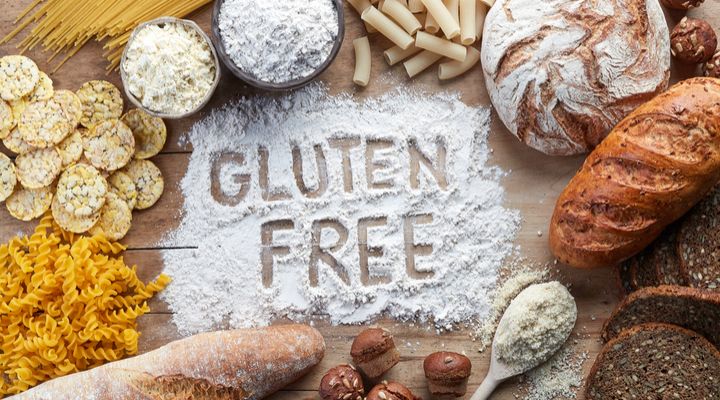
Celiac disease impacts a portion of the American population, yet concerns surrounding it have spurred a widespread movement of individuals adopting a “gluten-free” lifestyle. However, according to Harvard Health, adhering to a gluten-free diet can lead to significant deficiencies. Eliminating gluten often means reducing fiber intake, along with missing out on essential nutrients and vitamins found in gluten-containing foods. Notably, gluten-free diets lacking in fiber have been associated with an increased risk of type-2 diabetes. Therefore, it’s important for individuals considering a gluten-free diet to be aware of potential nutritional implications and to ensure they’re obtaining necessary nutrients through other means.
“Clean” Eating
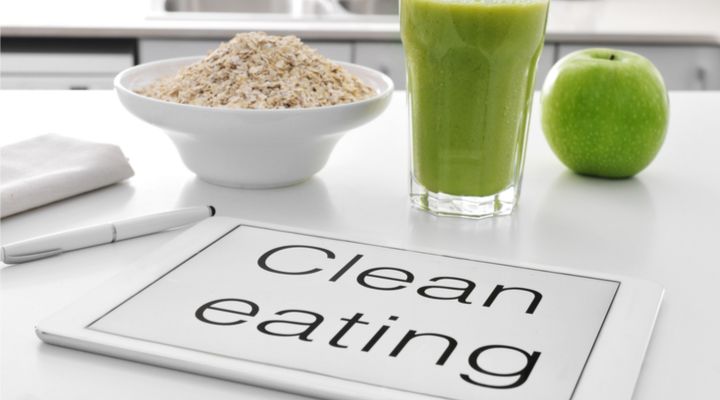
Initially, adopting a clean eating approach may seem beneficial. However, this diet can indirectly lead to severe eating disorders, which in turn can result in a range of health complications. These may include reproductive issues, osteoporosis, and a compromised circulatory system. It’s important to exercise caution and avoid becoming overly fixated on the concept of “eating clean,” as it can contribute to the development of mental health issues over time. Striking a balance and maintaining a healthy relationship with food is crucial for overall well-being.
Water Bottles

Doctors frequently emphasize the importance of staying hydrated, but using reusable water bottles continuously may pose health risks. Many plastics used in these bottles contain Bisphenol A (BPA), a commonly used chemical associated with various health concerns. Research has linked BPA exposure to conditions such as diabetes, obesity, high blood pressure, and cancer. Therefore, it’s essential to be mindful of the materials used in reusable water bottles and opt for BPA-free alternatives to minimize potential health risks.
Liquid Nitrogen

While incorporating liquid nitrogen into mixed drinks and desserts can add a visually appealing and cooling effect, it also poses significant dangers. Direct contact with liquid nitrogen can lead to severe injuries, potentially requiring emergency medical attention. In one unfortunate case, a girl had to undergo the removal of her stomach after consuming a beverage containing liquid nitrogen. Therefore, it’s crucial to exercise caution and proper handling when using liquid nitrogen in culinary applications to prevent potential accidents and injuries.
Too Much Water

The long-standing recommendation to drink eight glasses of water a day has been subject to debate. The more accurate guideline suggests consuming 30 to 50 ounces of water daily, equivalent to about five to six glasses. Consuming excessive amounts of water can strain the kidneys, resulting in overhydration and the accumulation of excess water in cells. This condition can cause abnormal swelling and, in extreme cases, even lead to death. Therefore, it’s essential to be mindful of hydration levels and avoid excessive water intake to maintain overall health and well-being.
Home-Brewed Kombucha
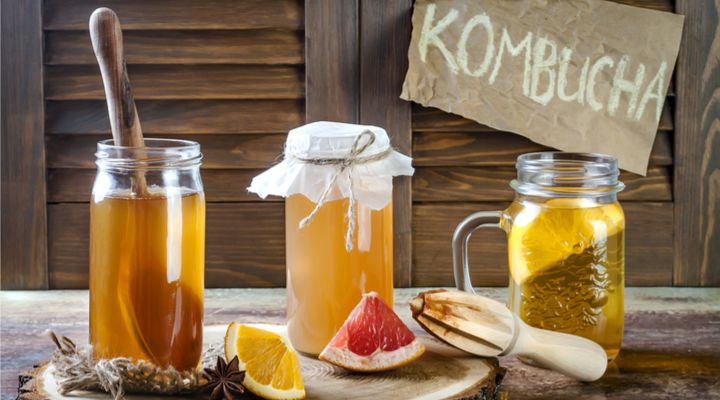
While Kombucha has been touted for its potential health benefits in alleviating various ailments such as high blood pressure, arthritis, and cancer, it’s essential to recognize the potential dangers associated with its preparation. The brewing process involves creating an acidic environment, which, if done incorrectly, can lead to excess toxicity. Consuming improperly brewed Kombucha has been linked to severe health issues, including inflammation of the heart muscles, cardiac arrest, and severe muscle weakness. Therefore, it’s crucial to exercise caution and ensure proper brewing techniques are followed to minimize the risk of adverse effects.
Non-Dairy Milk
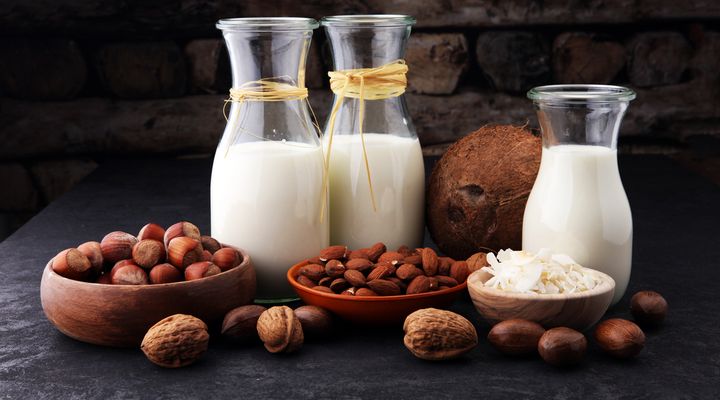
Non-dairy milk alternatives like soy, almond, and coconut milk have gained popularity for their taste and versatility. However, it’s important to be aware of potential drawbacks. Unlike dairy milk, these substitutes often lack iodine, a vital nutrient found in dairy products. Iodine deficiency can have serious consequences, particularly for pregnant women, as it may lead to thyroid problems. Additionally, studies have suggested a link between iodine deficiency and lower IQ scores in children. Therefore, individuals who rely on non-dairy milk alternatives should consider incorporating other sources of iodine into their diets to prevent deficiencies and associated health issues.
Ear Candling

Ear candling, a practice involving the insertion of a fabric tube soaked in wax into the ear and then ignited, is purported to remove ear wax and clear impurities from the ear canal, aiding in conditions such as colds and toxins. However, scientific research refutes these claims. Ear candling has been found to be ineffective in removing ear wax or clearing impurities, and it can lead to serious risks such as punctured eardrums and burns. Therefore, it’s important to be cautious of such practices and rely on proven methods for ear care and hygiene.
Avoiding GMOs

Genetically modified organisms (GMOs) are often utilized in grains and other crops to enhance traits like resilience and nutritional content. While there’s no substantial evidence suggesting long-term negative effects of avoiding GMOs, consuming foods containing GMOs is generally considered safe and healthy. However, it’s crucial to note that the absence of GMOs doesn’t inherently make a product healthier. Some companies may label their products as “Non-GMO” as a marketing tactic to appeal to health-conscious consumers, but the absence of GMOs alone doesn’t necessarily indicate superior nutritional quality. Therefore, it’s essential for consumers to scrutinize product labels and make informed dietary choices based on overall nutritional content rather than solely focusing on GMO status.
Placenta Pills

For new mothers, there’s a prevalent belief that certain pills can provide various benefits such as boosting energy, preventing postpartum depression, increasing milk production, and balancing hormones. However, it’s important to approach these claims with caution. These pills can potentially dehydrate the body, which may disrupt the organ’s functioning and compromise the levels of beneficial hormones and other chemicals it contains. It’s crucial for new mothers to consult with their healthcare provider before starting any new supplements to ensure they are safe and appropriate for their individual needs.
E-Cigarettes

This fairly new craze has captured the attention of many teenagers. As a rumored “healthy alternative to smoking,” electronic cigarettes have proven to result in many teens picking up the habit of smoking as adults. There is no evidence that says e-cigarettes changed smoking habits in a good way, and in fact it’s often the opposite.
Cupping

You may have noticed athletes with suction cup marks on their bodies, a practice known as cupping, which gained attention during the 2016 Summer Olympics. This ancient Eastern treatment involves creating suction on the skin, which can result in the breaking of blood vessels and leaving distinctive marks resembling hickeys. Proponents claim that cupping stimulates blood flow and aids in toxin removal through the lymphatic system. However, numerous studies have debunked these claims, suggesting that cupping offers little to no therapeutic benefit. Instead, the practice may simply cause discomfort without providing significant health advantages.
Oil Pulling

This is the practice of swishing coconut or sunflower oil in your mouth for 20 minutes, and is rumored to help prevent cavities, freshen breath, and leave mouths cavity-free. The truth is that this is untrue, and those who substitute brushing and flossing with oil pulling leave themselves susceptible to all of those things they think they are preventing.
Extreme Fasting

Some people try going on a water-only diet for days at a time. This is extreme and quite harmful. Many experience dizziness, fatigue, and cardiovascular problems from long periods of fasting. This has also been known to break down muscle.
The “Blood Type” Diet

This dietary practice suggests that individuals should eat specific foods based on their blood type. However, this diet is highly restrictive and complex, with no substantial evidence supporting its effectiveness for weight loss. On the contrary, following this diet may lead to nutrient deficiencies due to its restrictive nature. Therefore, while proponents of the blood type diet claim various health benefits, there is limited scientific support, and the diet’s complexity and potential nutritional deficiencies raise concerns about its overall efficacy and safety.
“Hot” Fitness Classes

You’ve probably heard of “hot yoga”. It’s perhaps the most popular health trend that falls into this category. Although you probably sweat a lot while you do it, which for some reason equates to good health in most people’s minds, this practice can leave you extremely dehydrated and susceptible to heat stroke.
Hormone Injections

The HCG Diet involves injections of the hormone chorionic gonadotropin alongside severe calorie restriction, limiting intake to just 500 calories per day. Proponents claim that this regimen can “reset” metabolism, but this assertion lacks scientific support. While the HCG Diet may lead to short-term weight loss, the long-term effects are concerning. Prolonged calorie restriction can actually slow down metabolism and result in the loss of muscle mass. Given these risks, individuals considering the HCG Diet should carefully weigh the potential short-term benefits against the long-term consequences before attempting it.
Conclusion
In conclusion, it’s important to approach health trends and dietary practices with critical thinking and caution. While some trends may offer short-term benefits, their long-term effects and potential risks should be carefully considered. It’s essential to rely on evidence-based information and consult with healthcare professionals before embarking on any new diet or health regimen. Additionally, be wary of marketing claims and seek out reputable sources of information to make informed decisions about your health and well-being. Remember that prioritizing balanced nutrition, regular exercise, and overall lifestyle habits are key components of maintaining long-term health and vitality.
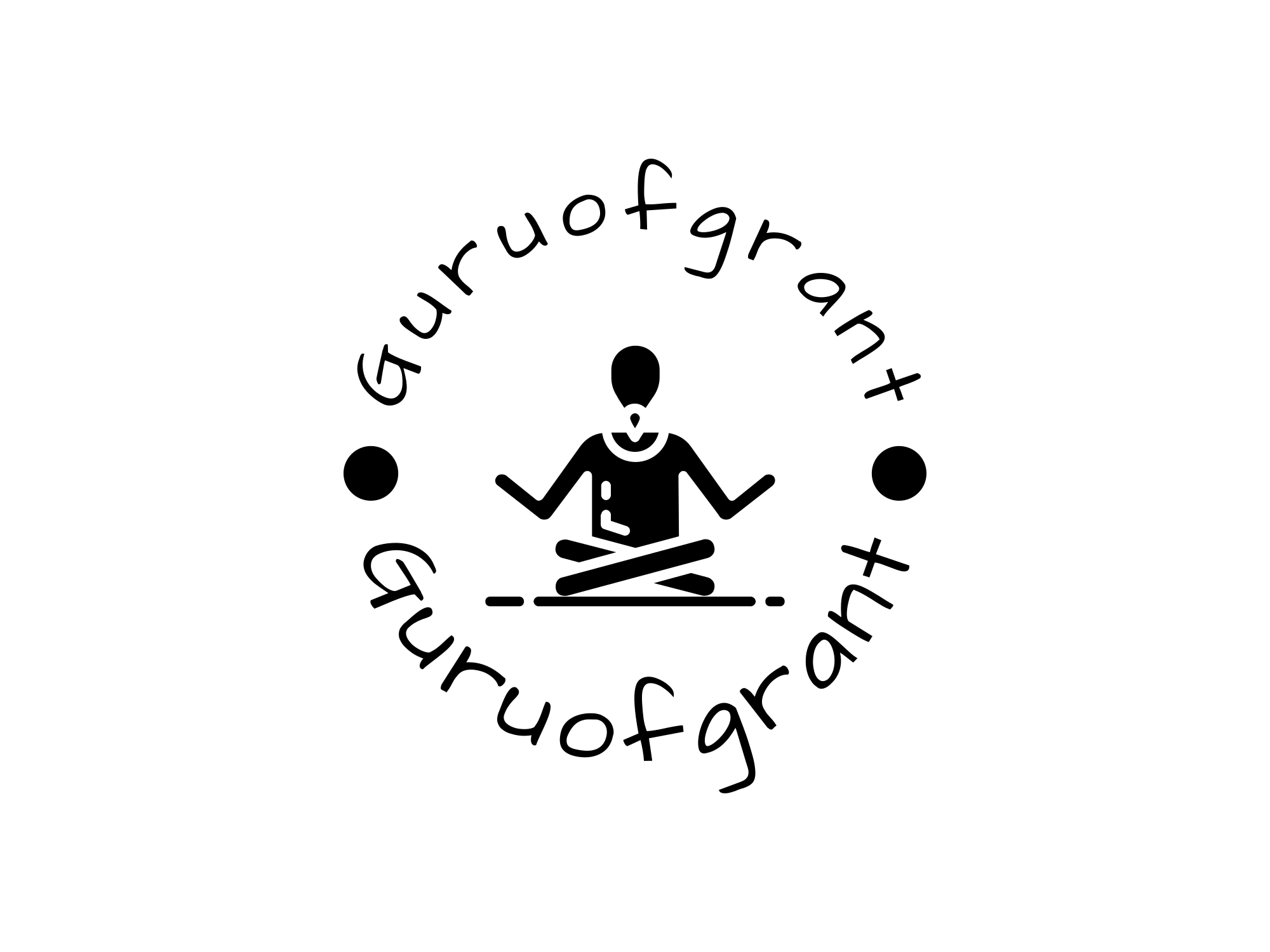



GIPHY App Key not set. Please check settings